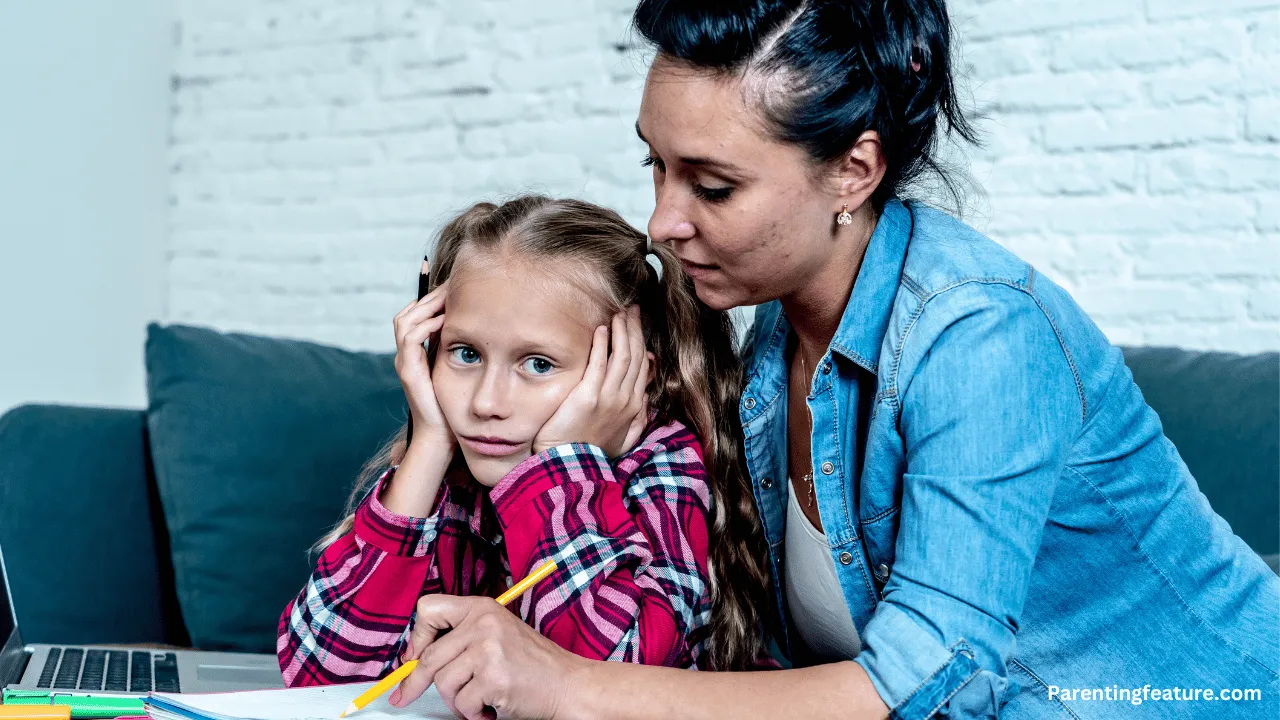In a local supermarket’s bustling aisles, a scenario that’s becoming all too familiar in today’s parenting landscape unfolds. A young child, eyes wide with the allure of a candy display, reaches out only to be gently but firmly denied by their parent.
The ensuing reaction is not quiet resignation but a loud, demanding outcry that captures the attention of everyone nearby.
While seemingly ordinary, this moment sparks a broader conversation about parenting styles, particularly the rise of gentle parenting and the concerns that it may sometimes cultivate a sense of entitlement in children.
Gentle parenting, a term that has gained considerable traction in recent years, is anchored in respect, empathy, understanding, connection, and responsiveness to a child’s needs.
It represents a shift from traditional authoritarian approaches, aiming instead to foster a nurturing environment where children feel valued and heard.
The central tenet of gentle parenting is not just the avoidance of physical discipline but also the creation of a relationship based on mutual respect between parent and child.
The popularity of this approach raises an intriguing question, forming the thesis of our discussion: While gentle parenting aims to cultivate a compassionate and empathetic environment, does it inadvertently encourage entitlement in some children?
The Benefits of Gentle Parenting
At its core, gentle parenting promotes a strong bond between parent and child. This connection is pivotal, leading to better emotional regulation and overall well-being in children.
Children who feel securely attached are more likely to develop healthy relationships and adapt positively to their environment.
Builds Emotional Intelligence:
Children learn to understand and express their feelings healthily by acknowledging and validating their emotions.
This education in emotional intelligence significantly reduces instances of tantrums and defiance, equipping children with the tools to navigate their emotions effectively.
Encourages Cooperation:
Unlike traditional methods relying on fear or authority, gentle parenting fosters cooperation through understanding and positive reinforcement.
This approach helps children internalize rules and boundaries naturally, leading to a more harmonious relationship between parent and child.
Supports a Child’s Intrinsic Motivation:
Gentle parenting respects a child’s autonomy and interests. It encourages an internal drive to explore and learn rather than relying on external rewards or validation. This nurtures a sense of self-reliance and confidence that can benefit children.
Also read: Gentle Parenting: Is It Rooted in the Bible?

The Concerns about Entitlement
In the context of parenting, entitlement can manifest as unrealistic expectations for preferential treatment, a lack of empathy, and an inflated sense of self-importance. These traits can hinder a child’s ability to effectively navigate social situations and challenges.
Permissiveness vs. Gentle Parenting:
A common misconception is equating gentle parenting with permissiveness. However, gentle parenting is about setting clear boundaries and teaching children about the consequences of their actions in a compassionate manner. The distinction lies in how rules and expectations are communicated and enforced.
Lack of Limits or Structure:
Inconsistencies in boundaries or shielding children from disappointment can lead to difficulties understanding the importance of limits. Without the opportunity to experience natural consequences, children might struggle to develop resilience and accountability.
Also read: Is Gentle Parenting Ineffective?
Difficulty with Delayed Gratification:
Over-accommodating a child’s desires can impair their ability to deal with frustration and delay gratification. Coping with not getting everything they want immediately is crucial for developing patience and perseverance.
The Importance of “No”:
Gentle parenting does not mean avoiding the word “no.” Instead, it’s about communicating limits. Clearly and kindly establishing boundaries is essential for teaching children about the realities of the world and their role within it.
Finding the Balance
Parenting is an inherently complex endeavor with no one-size-fits-all solution. The effectiveness of gentle parenting, or any parenting style, depends mainly on the individual child and family dynamics.
Adaptable Gentle Parenting:
Gentle parenting is not a rigid set of rules but a flexible approach that can be tailored to meet children’s varying needs. It’s about forging a deep connection with your child and adjusting your methods as they grow and their needs change.
Emphasize Setting Limits and Expectations:
Establishing clear, age-appropriate expectations and consistently upholding them is crucial. Respect and kindness should coexist with firm boundaries to create a balanced and healthy environment for children.
The Role of Natural and Logical Consequences:
Allowing children to face the natural outcomes of their actions can be a powerful teaching tool. Guiding them to understand the link between their choices and consequences fosters a more profound sense of responsibility and self-awareness.
Conclusion
Gentle parenting presents a promising shift towards a more empathetic and understanding approach to raising children. However, like any parenting style, it comes with challenges and criticisms, notably the concern that it may contribute to a sense of entitlement in some children.
The key lies in finding a balance that suits each family’s unique needs, incorporating the principles of gentle parenting to foster empathy and responsibility.
Parents are encouraged to trust their intuition and remain open to adapting their approach. Gentle parenting, after all, is a toolkit rather than a rulebook.
By engaging in open dialogue and continuously seeking to understand the evolving landscape of parenting, families can navigate these complexities together, ultimately aiming for their children’s well-being and balanced development.
FAQs
1. Can gentle parenting make a child entitled?
The concern is that without appropriate boundaries and expectations, any parenting style, including gentle parenting, could inadvertently foster entitlement in some children. However, gentle parenting teaches accountability, empathy, and self-regulation, which, when applied correctly, counteract entitled behavior.
2. How does gentle parenting benefit emotional intelligence?
Gentle parenting helps children learn to understand and manage their emotions by acknowledging and validating them. This approach reduces tantrums and defiance and boosts children’s ability to empathize with others and navigate social situations.
3. Does gentle parenting mean never saying “no” to a child?
No, gentle parenting does not avoid the word “no.” Instead, it focuses on how boundaries and limitations are communicated. The goal is to express “no” in a way that respects the child’s feelings while clearly and kindly setting necessary limits.
4. How can parents balance gentle parenting and preventing entitlement?
Balance can be achieved by tailoring the gentle parenting approach to fit the child’s needs, ensuring precise and consistent boundaries, and allowing natural consequences to teach essential life lessons. It involves a blend of empathy, respect, and firmness.
5. What role do natural and logical consequences play in gentle parenting?
Natural and logical consequences are critical in gentle parenting as they allow children to understand the impact of their actions in a real-world context. This approach teaches responsibility and accountability, helping children learn from their mistakes in a supportive environment.








